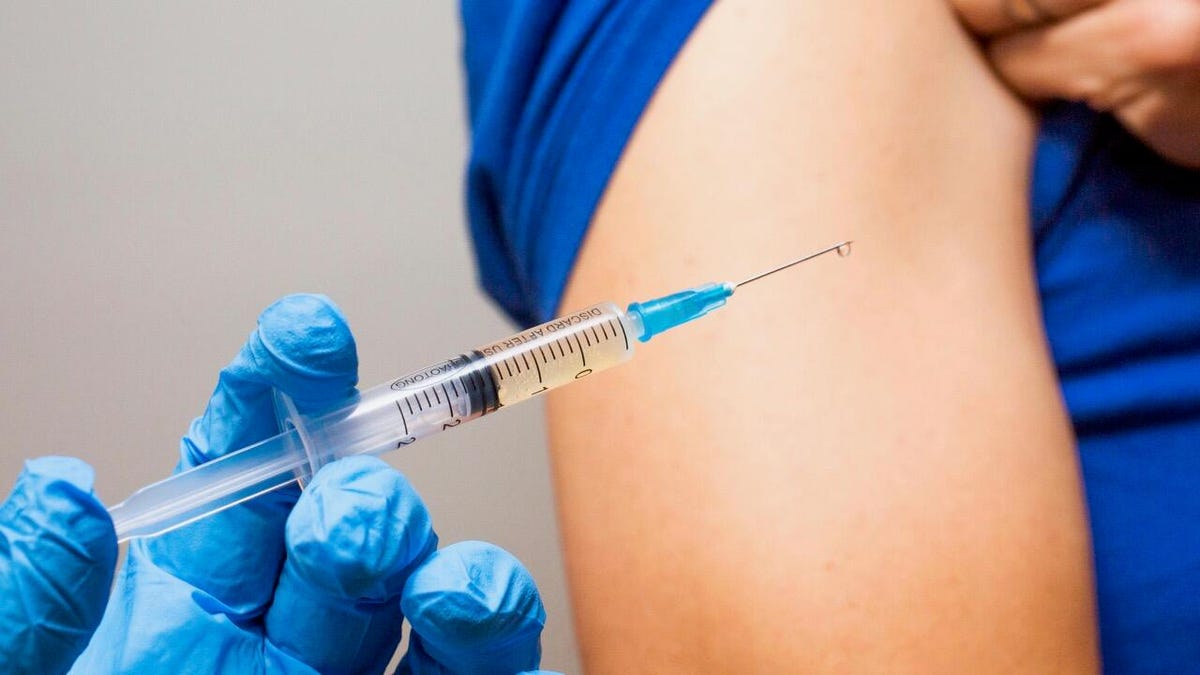Your employer can require you get a COVID-19 vaccine: Here's what to know
A Supreme Court case determined that states can require vaccines and the US agency that oversees employment says your employer can, too.

Local governments have required vaccinations during previous pandemics and the Supreme Court has upheld their right to do so.
As the US campaign to distribute coronavirus vaccines continues to ramp up, over 8 million doses have now been administered in the US as of Jan. 11. For the time being, however, only very specific groups of people -- mostly health care workers -- have been cleared to receive a COVID-19 vaccine. Some of those medical professionals may be required by their employer to get vaccinated, which leads to the question: Can your employer make you get a COVID-19 vaccine?
The answer is a little more complicated than a simple yes or no. Generally speaking, yes, employers can require employees to receive a vaccine during a pandemic to better ensure the health and safety of their overall staff. However, there are a few exceptions that could exempt you from having to receive a vaccine if your employer makes it mandatory.
Here, we look at what gives employers the right to require their workers to get vaccinated for the coronavirus, as well as what laws are in place to protect you if you have a valid reason for not wanting to get vaccinated yourself. This article is intended to be a general overview and not a source of legal or medical advice.
Although your employer can legally require you to get a COVID-19 vaccine, most jobs in the US so far haven't mandated it.
US government says employers can require vaccines
According to the US Equal Employment Opportunity Commission, US employers can require employees to receive vaccinations against diseases that have been recognized as pandemics, like COVID-19. The agency's guidance dates back to the H1N1 (aka "swine flu") outbreak of 2009 but was updated in March 2020 to address the coronavirus pandemic specifically. As was the case in 2009, there are two main exceptions to this rule; keep reading for an explanation of both.
Americans with Disabilities Act protects some people from mandatory vaccination
The Americans with Disabilities Act requires employers to provide "reasonable accommodations" to workers with medical conditions that would make them unable to take a vaccine. For example, the FDA has recommended that people with certain allergies not get a coronavirus vaccine, but there may be other reasons as well, such as having a compromised immune system.
Civil Rights Act also protects people with religious beliefs opposing vaccines
Even if you don't have a medical reason for not wanting to get vaccinated for COVID-19, you may be able to object on other grounds -- Title VII of the Civil Rights Act of 1964 protects people who refuse to take a mandatory vaccine on account of sincerely held religious beliefs. The Equal Employment Opportunity Commission does not require membership in a church or even a belief in God to substantiate religious objections: Strongly or sincerely held moral or ethical beliefs are also covered by the law.
The Equal Employment Opportunity Commission has indicated that employers are allowed to require vaccines to protect the health and safety of their employees.
What happens if you object to receiving a vaccine when your employer requires it?
Just because you have a valid medical or theological objection to receiving a coronavirus vaccine doesn't mean your employer has to let you continue working under the same conditions you've been used to. All of the above objections require employers to make "reasonable accommodations" if an employee objects to receiving a vaccine. Such accommodations could include allowing the employee to work remotely or take a leave of absence.
A 1905 Supreme Court case allows employers to require vaccines
In 1901, a deadly smallpox outbreak in New England prompted local governments to order mandatory vaccinations for everyone in the area. Some residents, however, objected, and one took it all the way to the Supreme Court. The Supreme Court decided in Jacobson v. Massachusetts that the government may impose "reasonable regulations" such as a vaccine requirement during a pandemic, for the purpose of protecting the "safety of the general public."
This court case forms the basis for guidance issued by the Equal Employment Opportunity Commission, which makes clear that employers may make similar demands of their workers.
Rather than require employees to get vaccinated, some workplaces are preparing to make it easier for workers to access it when their priority group is called.
How likely is your employer to require a COVID-19 vaccine?
The industry most likely to require workers get immunized against coronavirus is the same one currently cleared to receive it -- health care. Other industries where workers are in a particularly high-risk group for contracting or spreading COVID-19, like retail or meat processing, are more likely to have employers require vaccines for their employees.
That said, many companies, rather than require coronavirus vaccinations, are focusing on making it easier for employees to get vaccinnated. The two biggest automakers in the US, for example, Ford and General Motors, have decided not to require vaccination of their workforces. Instead, Ford, for its part, has ordered a dozen of its own freezers to store the vaccine in when doses become available for its workers.
Here are a few other reasons why someone might not get a coronavirus vaccine right away, although the biggest thing stopping you right now might be where you fall in the CDC's list of priority groups. Not to mention that there are currently two different vaccines, with more on the way, and which type you get might depend on both who you are and where you are.

